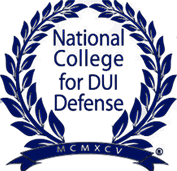
Why Choose Us?
Aggressive Defenders
The Law Office of Kevin Cahill has a long track record of fighting drug possession charges with strategic and meticulously planned defenses. Our team cares only about your rights and freedom. We do everything in our power to get you the most optimal resolution to your charges, which may include dropped or dismissed charges, reduced charges, or a reduced sentence.
At the Law Office of Kevin Cahill, we . . .
- Are always available, around the clock
- Are led by a confident and fearless litigator
- Fight for and with you until the end.
Colorado has a reputation for being soft on drug crimes. In reality, law enforcement goes hard on drug crimes, even possession. Attorney Kevin Cahill and his team are ready to attack the prosecution’s case against you and fight to get you home whenever possible.
If you are facing drug possession charges in Denver, acting quickly to hire a Denver drug possession lawyer can make a big difference in your case. The Law Office of Kevin Cahill is prepared to meet with you and discuss your charges and possible defenses and outcomes. Give us a call at 720-548-2990.
Understanding Colorado Drug Possession Charges
Over the past several years, Colorado has softened its stance slightly on drug possession, reflecting a broader awareness of emerging drug abuse trends. For example, marijuana is now recreationally and medically legal throughout the state. Additionally, Colorado has reduced the severity of non-marijuana drug possession crimes. That said, the state still goes hard against all drug crimes, even possession, seeking serious punishments from the courts. And even though cannabis is legal, there are possession limits that prescribe criminal penalties when the limit is surpassed.
Drug Schedules
Colorado utilizes the following five-category drug schedule to classify drugs and determine the severity of drug crimes:
- Schedule I: Drugs with a significant potential for abuse and no accepted medical use within the United States (e.g., heroin, LSD, and PCP)
- Schedule II: Drugs with a slightly lower but still elevated risk of abuse with some accepted medical uses (e.g., oxycodone, fentanyl, and cocaine)
- Schedule III: Drugs with a low level of risk of abuse that have valid medical uses, such as ketamine and small amounts of certain Schedule II drugs
- Schedule IV: Drugs that cause only limited physical or psychological dependence and have recognized medical uses, such as sleep medications
- Schedule V: Drugs with the lowest risk of abuse and development of psychological or physical addiction, including buprenorphine.
Scheduling issues can be complex and nuanced. Defendants to these charges need an experienced Denver drug possession lawyer to confidently and effectively navigate the criminal process against them. Otherwise, they could face maximum penalties.
Criminal Penalties
As mentioned, Colorado has recently reduced the charge for drug possession in certain instances. Previously, possession of any amount of a Schedule I or Schedule II drug was considered a Class 4 drug felony. However, in 2020, the legislature changed the law to read that only possession of more than four grams of Schedule I or II drugs would be a felony.
In most other cases, drug possession is a misdemeanor unless the defendant is a repeat offender. After four or more repeat drug possession offenses, the charge becomes a level four felony.
Whether charged with a misdemeanor or a felony, a defendant could be looking at up to 18 months in jail or 8 years in prison, respectively. Fines are also a part of the penalty convicted offenders must pay. This makes it essential to seek a defense from an experienced drug possession attorney.
Types of Drug Possession
There are various types of drug possession that lead to criminal charges, including:
- Actual Possession: Actual physical possession and control over an object
- Constructive Possession: Control of or the right to control objects not immediately accessible
- Joint Possession: Control or possession split between two or more parties
- Possession with Intent: Inferred intent to sell based on contextual factors (e.g., the presence of ledgers, scales, or cash).
An example of actual possession would be having drugs in your pocket or somewhere within arm’s reach. An example of constructive possession is drugs found in a school or work locker. Although the person in control of the locker may not always be within arm’s reach of the drugs, possession is presumed since the locker is under their control. If two people have control over and regular use of said locker, joint possession may be at issue.
Whatever the type of possession you are facing, you need an experienced drug possession attorney in Denver to provide you with a strong, technical defense.
Collateral Consequences to Drug Possession Convictions
The criminal consequences of drug possession can be steep. However, they are not the only form of setback convicted individuals must face. They must also endure a series of collateral hardships in their day-to-day lives because of their criminal record. In many cases, a Denver drug possession attorney can help their client find relief from these hardships.
Employment
It is rare to find a job application without a question related to the applicant’s criminal history. In some cases, a drug possession conviction is a non-issue, especially in cases involving small amounts of marijuana. However, many work opportunities have a zero tolerance for conviction of any drug charge.
Schooling
A criminal record with a drug possession conviction may provide a substantial obstacle to one’s pursuits of higher education. It can also significantly impact a student’s scholarships and grants. As of July 1, 2023, federal student aid is no longer impacted by drug convictions.
Housing
Criminal records are an important metric in housing application decisions. Drug possession charges can be a major red flag, especially when related to possession with intent to sell. Denver drug possession attorneys can help get red flags removed from your record.
Civil Rights
A felony conviction strips a defendant of many of their civil rights, but only while incarcerated. Recently, the term “incarcerated” was changed to include only time behind bars and not probation and parole. This means that once a defendant serves their time behind bars, they can immediately register to vote or hold public office. They may not, however, possess a firearm upon leaving prison.
A Criminal Attorney Can Help
If you are dealing with the consequences of a criminal conviction, a Denver drug possession attorney can potentially help you get relief. Expungement for juveniles and record sealing for adults can be an effective way to prevent your past from impacting your future. Directed and effective legal guidance from your drug possession attorney in Denver can help you make appropriate plans and decisions for your life. If you have already been convicted of drug possession, you are strongly encouraged to contact a Denver drug possession attorney regarding your future.
Denver drug possession lawyer Kevin Cahill meticulously explores every potential defense.
Frequently Asked Questions
Here are the answers to some of the most common drug possession questions we hear from our clients.
Will my case go to court?
As a defendant in a criminal case, you have a right to trial. However, the majority of drug possession cases never see the inside of a courtroom. They are instead settled through plea negotiations.
Should I accept a plea deal?
As mentioned, most drug possession cases end in a plea deal. Whether you should accept a plea deal depends entirely on your situation. Your Denver drug possession lawyer will be instrumental in guiding you to make the most appropriate decision, which is ultimately the defendant’s to make.
Can I face federal charges for drug possession?
Federal drug possession charges are always a possibility. However, simple possession typically results in only state charges. In either, you need an experienced Denver drug possession attorney to defend you.
Can I have a drug conviction expunged in Colorado?
Yes. Juveniles may have drug convictions expunged from their record under certain circumstances. Adults, on the other hand, can seek to have their drug possession conviction sealed. Expungement occurs when the criminal records are destroyed, whereas sealing only seals them off from public view.
What is the statute of limitations for drug possession in Colorado?
The statute of limitations for drug possession depends on whether the incident is being charged as a misdemeanor or a felony. Misdemeanor drug charges in Colorado generally have a statute of limitations of 18 months. Felony drug charges, on the other hand, have a statute of limitations of three years.
If you have more drug possession questions, call us any time to speak with an experienced drug possession lawyer in Denver.
Contact the Law Office of Kevin Cahill for a Robust Defense
We Fight for Your Future
Your future is important, but it is on the line if you are facing drug possession charges. If you have been arrested or charged with drug possession, the sooner your Denver drug possession lawyer attacks the charges the better. Don’t delay in seeking legal representation.
To protect your rights and future, contact The Law Office of Kevin Cahill at 720-548-2990 for a consultation. Let an experienced and caring drug possession lawyer in Denver defend you against the charges you are facing. Call today.

ATTORNEY KEVIN CAHILL
Denver Defense Lawyer Kevin Cahill never assumes that your case is a lost cause. He is a confident and fearless litigator who refuses to back down when he is fighting to protect the rights of his clients. Regardless of whether you are facing a felony or a misdemeanor, it is vital that you take the charges seriously and seek out legal representation as soon as possible so you can start building your defense. [ ATTORNEY BIO ]




